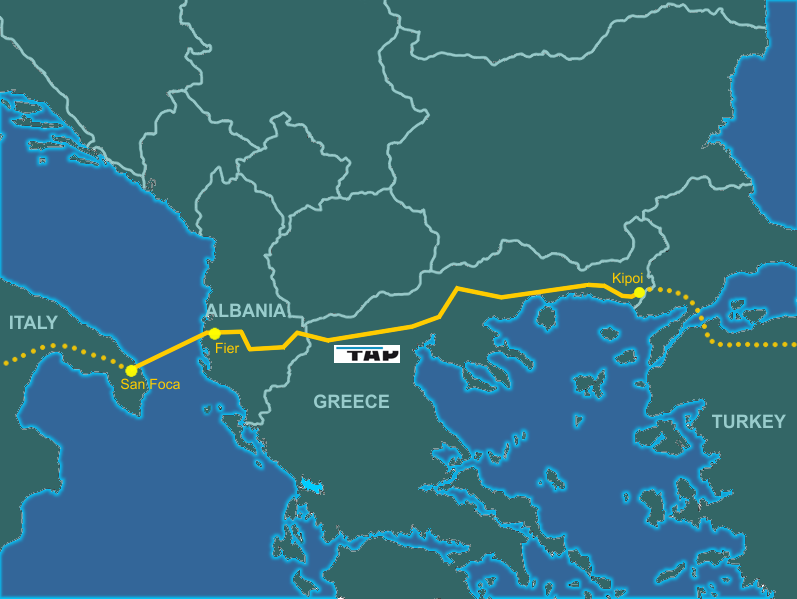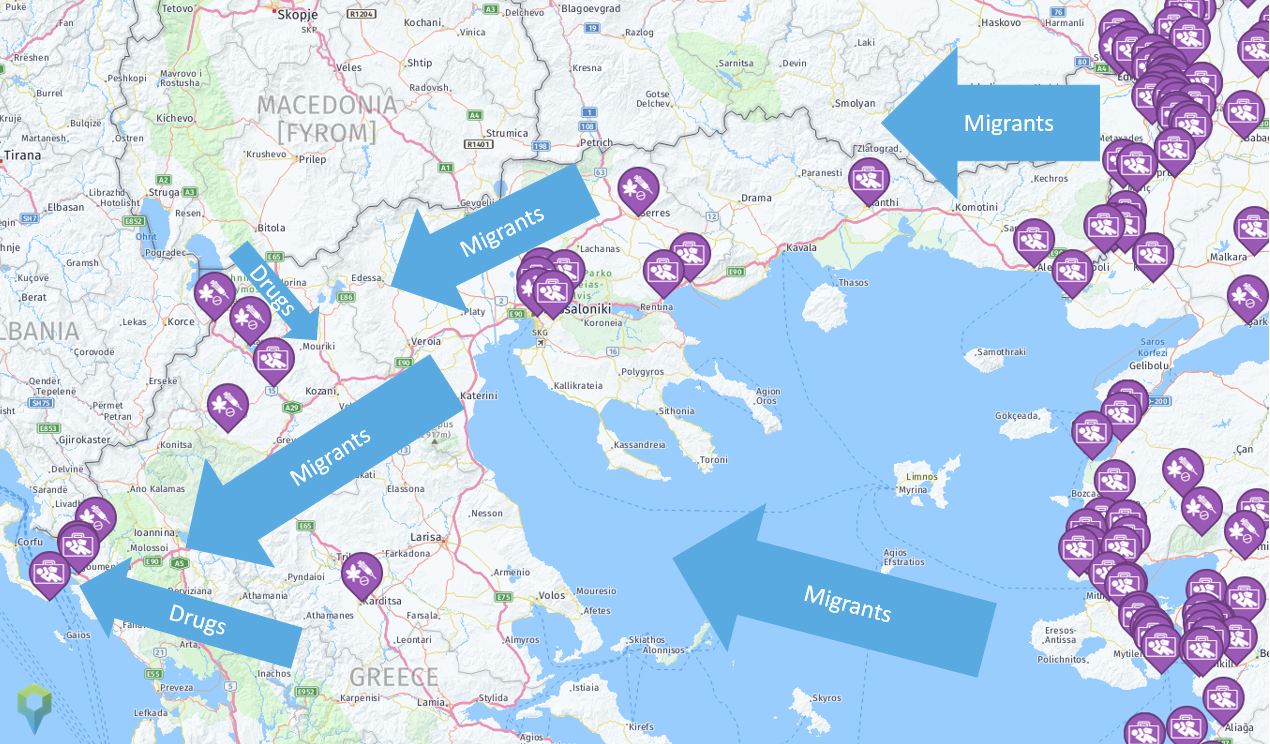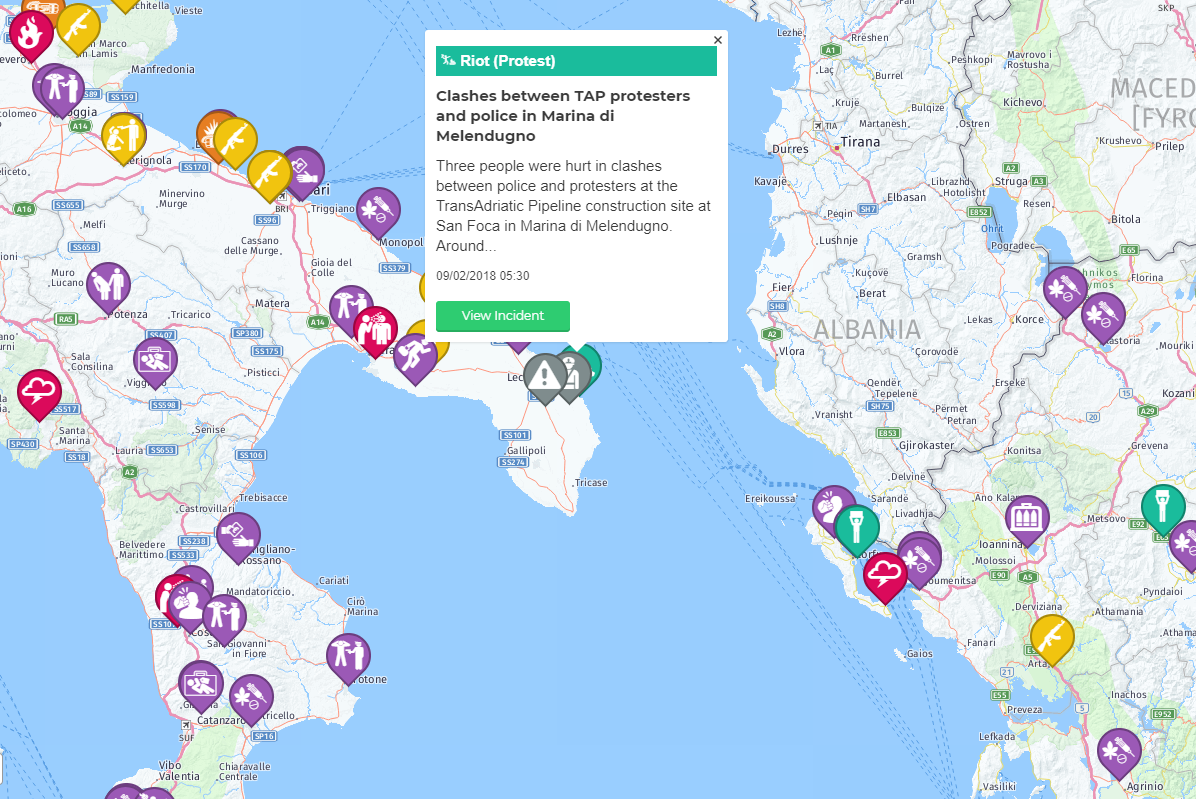The Security and Environmental Challenges of the Trans Adriatic Pipeline (TAP)
The Trans Adriatic Pipeline (TAP) is a pipeline project to transport natural gas, starting from Greece via Albania and the Adriatic Sea to Italy and further to Western Europe. Once finished, TAP will play a considerable part in helping secure Europe’s energy future. With construction beginning in 2015, and being reported as two thirds complete in March 2018, the pipeline has faced both security and environmental challenges.

Planned Main TAP Pipeline Route
The main TAP pipeline parallels with prominent narcotics and human trafficking routes across Turkey, Greece and Albania. Local communities have complained of the pipeline threatening local economies, damaging ecosystems and not providing enough employment to compensate. The TAP project has attempted to reach out to local communities as a response such as offering fair compensation to people affected and donating 70,000 seedlings and 222 tonnes of fertilizer for Albanian farmers. TAP has also been criticised for allegedly supporting authoritarian governments in Turkey and Azerbaijan. Another criticism has been the potential for organised criminal groups to infiltrate public tenders for construction work. The TAP project however insists that they are facilitating opportunities for local people and businesses to benefit directly and indirectly from company activities.

Significant Human & Drug Trafficking Incidents – Greece and Turkey 2018
Although the TAP project aims to avoid negative environmental impacts, enhance positive effects, and contribute to sustainable development, this has been met with controversy. Within Italy there have been a series of protests by both local citizens and government officials against the construction of TAP specifically the construction of a gas terminal in a historical olive grove in the countryside near the Apulian town of Melendugno. Due to the fierce nature of the protests and resistance by local community members and environmentalists, a so-called security “red zone” was declared around Melendugno by the central government’s military police force in November 2017. The site is now protected with security patrols, barbed wire fencing and concrete barriers. Clashes still continue with protesters who attempt to infiltrate the site. The pipeline’s landing point on the Puglia coastline is also located under the pristine beach of San Foca, a popular summer destination for beachgoers. Locals and environmentalists have raised safety concerns regarding the pipeline being located near so many holiday makers.

Incident at TAP Pipeline Construction Site 2018
Once fully operational, TAP will provide transportation capacity that enables organisations to market their gas on the European markets. TAP also argues that by providing the cleanest fossil fuel, gas will play an increasingly important role in achieving the EU’s commitment to reducing carbon emissions and achieving its environmental targets. Although there are regional issues, it remains apparent that the TAP pipeline will provide Europe with further energy security in the coming decades.
For regular Oil and Gas industry news, analysis and reports direct to your inbox, sign up to our updates here.

